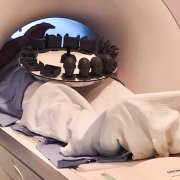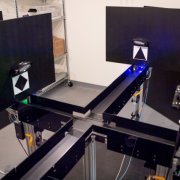News
September 24, 2020
By Jo He-rim (herim@heraldcorp.com)
Hyundai Motor Group said Thursday it has scouted Tomaso Poggio and Daniela Rus, experts on artificial intelligence, to work together on various projects of AI technology development.
Poggio and...
Hyundai Motor Group said Thursday it has scouted Tomaso Poggio and Daniela Rus, experts on artificial intelligence, to work together on various projects of AI technology development.
Poggio and...
August 31, 2020
Dr. Barbara Partee is an MIT alum who was a guest speaker at the precursor event to CBMM - MIT150 Symposia: Brains, Minds and Machines.
by Maria Iacobo
When Barbara Partee PhD ’65 was growing up in Baltimore County, her parents...
by Maria Iacobo
When Barbara Partee PhD ’65 was growing up in Baltimore County, her parents...
August 26, 2020
IAIFI will advance physics knowledge — from the smallest building blocks of nature to the largest structures in the universe — and galvanize AI research innovation.
by Laboratory for Nuclear Science
The U.S. National Science...
by Laboratory for Nuclear Science
The U.S. National Science...
August 26, 2020
Study finds that the fusiform face area is active when blind people touch 3D models of faces.
by Anne Trafton | MIT News Office
More than 20 years ago, neuroscientist Nancy Kanwisher and others discovered that a small section of...
by Anne Trafton | MIT News Office
More than 20 years ago, neuroscientist Nancy Kanwisher and others discovered that a small section of...
August 24, 2020
Description:
Up until now, we’ve been smarter than our tools. But that might change drastically sooner than we know. Isn’t it time to think about that?
Up until now, we’ve been smarter than our tools. But that might change drastically sooner than we know. Isn’t it time to think about that?
August 19, 2020
New book from the MIT Press explains how to 'Speak and Write to Persuade and Inform'
The MIT Press
Announcement from the MIT Press: Make it Clear by legendary MIT professor Patrick Henry Wilson to publish September 22nd
"He had...
The MIT Press
Announcement from the MIT Press: Make it Clear by legendary MIT professor Patrick Henry Wilson to publish September 22nd
"He had...
August 14, 2020
New statistical model may help scientists understand how animals infer whether surroundings are novel or haven’t changed enough to be a new context.
by David Orenstein | Picower Institute for Learning and Memory
Among the many...
by David Orenstein | Picower Institute for Learning and Memory
Among the many...
August 7, 2020
The Herbert A. Simon Prize recognizes scientists who have made important and sustained contributions to understanding human and machine intelligence through the design, creation, and study of computational...
August 4, 2020
Part of the visual cortex dedicated to recognizing objects appears predisposed to identifying words and letters, a study finds.
Anne Trafton | MIT News Office
Humans began to develop systems of reading and writing only within the...
Anne Trafton | MIT News Office
Humans began to develop systems of reading and writing only within the...
August 2, 2020
MIT researchers’ new theory illuminates machine learning’s black box.
by Cami Rosso
The resurgence of artificial intelligence (AI) is largely due to advances in pattern-recognition due to deep learning, a form of machine learning...
by Cami Rosso
The resurgence of artificial intelligence (AI) is largely due to advances in pattern-recognition due to deep learning, a form of machine learning...










